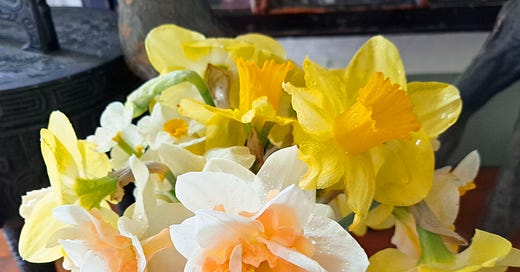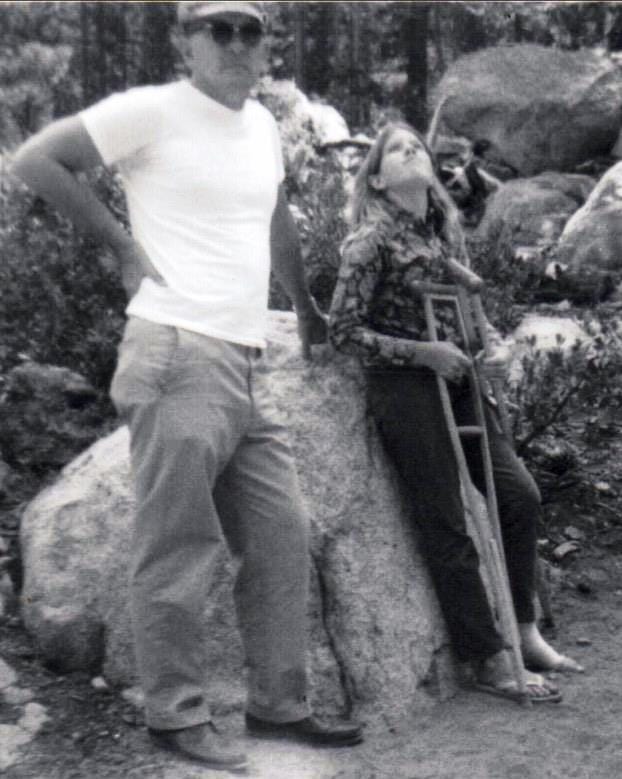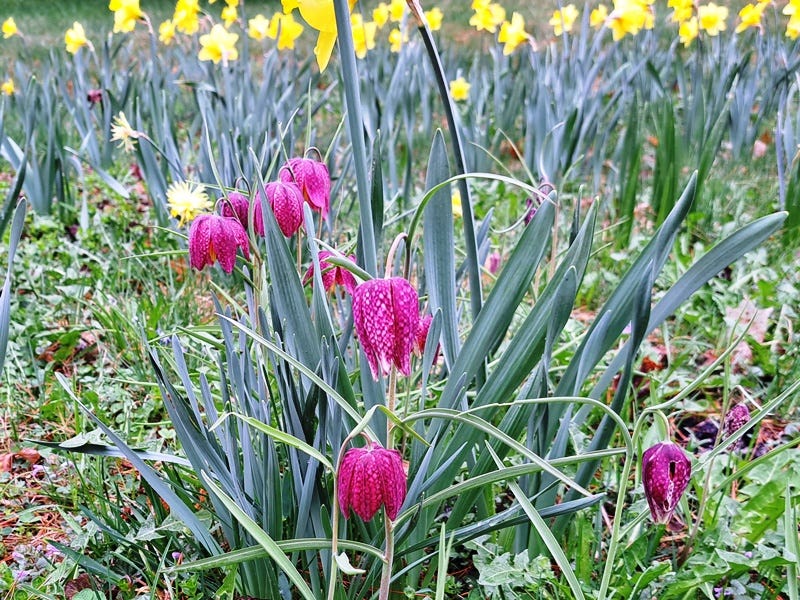When I was 13 my father started making “ecology runs” every Saturday afternoon. This meant mustering as many kids as possible and driving up into the foothills above California’s Santa Clara [Silicon] Valley to gather cans, bottles, paper, and plastic which had been thrown along the roadside. The trash was sorted into boxes in the back of our big station wagon—aluminum cans went to the recycling center, soda bottles went back to the grocery store, and the rest was bagged for garbage collection. Dad arrived home glowing with accomplishment.
I grew to hate the word ecology and I never once went on one of Dad’s ecology runs. This became a point of honor. Every week I had to devise some new scheme to avoid taking part. I resented the fact that Dad’s “ecology” meant good citizenship instead of political activism. His quiet statement of civic responsibility was too tame for me. Trash was messy. It wasn’t my problem. I was incapable of seeing a connection between the state of the roads and the state of my world.
The text above was the opening of my first book, Home Ecology: Making Your World a Better Place, published in the spring of 1989, and included in the US edition the following year. But my father soon disappeared from the story. We were estranged for many years and he died in 2008. I didn’t agree with him about much, but I appreciate the fact that he had heard about Earth Day and wanted to make some contribution.
I thought of him this week when I read that Great Barrington’s Earth Day focus is getting people to collect trash in special yellow bags. Roadside trash seems a rather minor problem in the scope of things, but everyone has to have a place to start. But if we’re driving, as my father did, and keeping the focus on roads, we haven’t quite got the message!
I’d like to make Earth Day a time to celebrate, as well as clean up. It was a book called Silent Spring that essentially kicked off the world environmental movement. Earth Day itself was one of the lasting results. When I hear birds whistling and twittering, the male cardinals loudest of all, and watch the pair of bluebirds going in and out of the box I put up last year, I rejoice that spring is not silent. We’ve made some changes and we can make more. What matters most is reducing fossil fuel use, so I won’t be driving today. I’ll be writing up notes about No Mow May, which is coming up soon. Last year’s effort lead to some striking garden landscapes and I think it’s one reason we have more birds in the neighborhood.
1. Put your car keys back in your pocket. Just for today, walk or even use this as inspiration to get your bike out and spring-tuned.
2. Choose a vegetarian sandwich for lunch, and avoid beef at suppertime.
3. Get outside, rain or shine: feel the sun and wind, breathe deep, enjoy the beautiful world that we live in!
Here’s the rest of that introduction to Home Ecology:
Only after my son was born in 1985 did it dawn on me that my concern about his well-being and future was connected with the environmental problems I read about. Early lessons came to mind and I began to feel uncomfortable. I knew I should be recycling bottles and tin cans, and that detergents were a bad thing. I suddenly wanted to do my part, to make a contribution.
The idea of individual action—simple things we can do to help save the planet—seems obvious now. What a change from 1987, when I first began work on Home Ecology. I had difficulty convincing the environmentalists I talked to that individual action was of any importance, and my friends looked embarrassed when I said that I was writing a book about ecology. Nowadays, when I say I’m an environmental writer people nod and smile and tell me about the recycling facilities in their neighborhood. My friends no longer see me as a crank. (You might like to know that E. F. Schumacher, the author of Small Is Beautiful, was happy to be called a crank. He explained that cranks are small, efficient tools that make revolutions.)
But many environmentalists still have reservations about the role the individual can play in saving the earth. “Green consumerism”—the notion that consumers can change industry simply by asking for environment-friendly products—is fraught with contradictions. It shifts the blame for environmental problems, and the quest for environmental solutions, to the individual and away from corporate polluters and government policy.
That’s not to say, of course, that the individual doesn’t matter. We have the ability, and a responsibility, to care for our home planet in small ways. We can improve our homes in the process, creating healthy, satisfying places to spend time with the people we love most.
I sympathize with dedicated campaigners who feel that only political action has any chance of changing the destructive course on which we have set ourselves. Institutional change, in governments and corporations, is essential. But so is home ecology. Both kinds of change, in institutions and in the way we live, are necessary. Like an army at war, there’s no point throwing all our troops into a battle on one front if we are threatened on several sides.
Whenever I hear someone criticize the current emphasis on what the individual can do, I come back to three certainties. The first is that personal change is an essential part of changing people’s attitudes, and it is public attitudes which will force the necessary changes in industry and technology, in the way we deal with our garbage, and in safety standards for dangerous products and processes.
Second, all of us need to become active participants in society. One of the most debilitating psychological consequences of the Cold War was a general feeling that we were standing on the sidelines, with no control over our own future. As I began to learn about the environmental problems which we face, I felt overwhelmed. But once I began to carry a string bag to the grocery store and draftproof my windows and stop buying things I didn’t need, I found that I could cope with discouraging information because I no longer felt powerless.
Third, you and I are the ones who will figure out how to make our homes and communities sustainable, healthy, and satisfying places to live. I disagree with the authors of The Green Consumer Guide, who believe that we are hooked on convenience and consumption, and that the best we can do is to lessen our destructive impact on the earth. I think that many of us want to make substantial changes and simply need to know where to start. While Home Ecology by no means provides all the answers, it is a realistic starting point.









